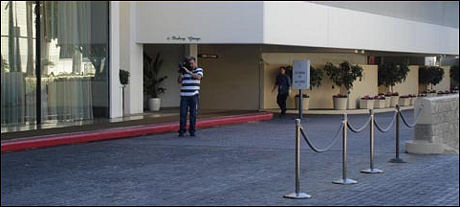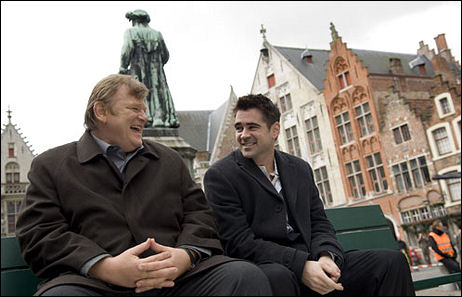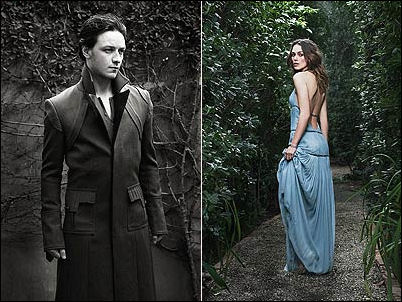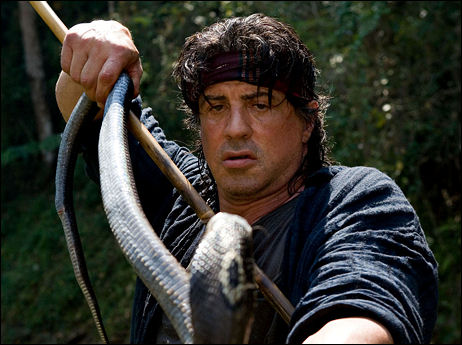HE’s final Golden Globes predictions with only minutes to spare. Best Picture, Drama: No Country for Old Men…duhhh. Best Director: Joel and Ethan Coen. Best Comedy or Musical: Juno…because money talks. Best Actor, Drama: Daniel Day Lewis, There Will be Blood. Best Actress, Drama: Julie Christie, Away From Her. Best Actress, Musical or Comedy: Marion Cotillard, La Vie en Rose…giving great perk shouldn’t be enough to give it to Ellen Page. Best Actor, Musical or Comedy: Johnny Depp, Sweeney Todd. Best Actress, Supporting: Amy Ryan, Gone Baby Gone…I offer this prediction under protest and duress — the winner should be I’m Not There‘s Cate Blanchett. Best Actor, Supporting: Javier Bardem, No Country for Old Men.
Scientology spots
Hollywood Interrupted‘s Mark Ebner sent along a URL with a group of what appear to be Scientology-produced video propaganda spots, four of which feature Tom Cruise. Most entertainment journalists look the other way at the whole Cruise/Scientology thing, and I suppose I’m one of them. But watch these spots and tell me what kind of vibe you get from them. Tell me they don’t creep you out.
The site‘s password is 2004event
There is an unmistakably robotic and strident tone to these pieces. Particularly in the copy read by the narrator, whose belligerent huckster voice makes him sound like a fiend out of 1984. (It reminds me of the voice of the “leader” in that Twilight Zone episode called “The Eye of the Beholder.”) It’s genuinely unnerving. This piece in particular, which barks about how Cruise paid more attention to Ground Zero air quality in the wake of 9.11 than New York authorities, speaks for itself.
Golden Globes activity
I’ll be back by 5 pm to riff on the pre-show chit-chat that will begin prior to the Golden Globes press conference, which goes on at 6 pm Pacific, 9 pm Eastern. NBC, E!, CNN and the TV Guide channel will be airing it. There’s also the option of clicking on TheEnvelope.com right after the announcements for a Golden Globes discussion between Tom O’Neil, Elizabeth Snead and Pete Hammond.

Snapped earlier this afternoon at the Beverly Hilton hotel. (Pic stolen from Tom O’Neil’s Gold Derby column.)
Brugerh or Broozh?
The narrator in the Focus Features trailer for In Bruges pronounces the city as “Brugerh” (another pheonetical spelling would be “Brugge”, which is an anagram of bugger). Other sources and dictionaries seem to favor “Broozh.” Which is it?
Black comedy about despair
“‘It’s kind of a black comedy about despair, [but] I don’t think they’re going to put that on the poster.” — Martin McDonagh speaking about In Bruges (Focus, 2.8), which he wrote and directed, to N.Y. Times writer Sylviane Gold.

Isn’t “Atonement” Dead as a Best Picture contender?
What is this strange Dave Karger belief in Atonement‘s shot at a Best Picture nomination? Isn’t it dead? Is there anyone who sincerely believes otherwise? And if they do, based on what? It’s a very sad and strong film that fell on deaf ears. It’s the light that failed. I knew it was in trouble when my ex-wife saw it last month and said she really didn’t like it. “Whaat?” I replied, more than a little startled. “But, but…”

Bloggers, Howell consider Oscar fate
In a sidebar called “Blogger’s Choice” in their 1.18.08 issue, Entertainment Weekly is running counterviews and tea-leaf readings from seven of “the film industry’s top bloggers,” including predictions about the 2.24 Oscar Awards broadcast. I’m the only one who is flat-out skeptical about the Oscars even happening. Everyone else — David Carr, Pete Hammond,. Tom O’Neil, David Poland, Sasha Stone and Anne Thompson — is predicting that a deal or a waiver will allow the show to broadcast.
I know this much: the AMPTP is sensing that WGA negotiators, who are regarded in some circles as erratic and inconsistent for making side deals here and there, is weakening because significant voices are bitching about their tactics and general leadership qualities, and the WGA guys know this. If the WGA grants a waiver for the Oscars they will be seen as flat-out pussies by the AMPTP hardballers, and the WGA guys know this. They need to either cut an overall deal by 2.10.08, or two weeks before the show (one week would be cutting it too close), or the strike will continue, the Oscars will get no special waiver and the WGA negotiators will have held on to a semblance of battlefield honor.
A 1.13 Toronto Star article by Peter Howell takes a somewhat more pessimistic view, or at least what you’d call a wait-and-see one.
“The Oscars are viewed as the ultimate example of the show that must go on,” Howell writes. “The Oscars have been delayed three times in the 80 years — by floods, by the assassination of Martin Luther King Jr. and by the attempted assassination of Ronald Reagan — but they have never been cancelled.
“The cancellation of the Golden Globes is a $75-million to $100-million blow to the L.A. economy, by one count, and the loss of the Oscars would surely dwarf that. What is apparent here, however, is that the awards shows are mere collateral damage in a bigger war for the future of movies and TV shows in the digital age. The old Hollywood of L.A.-based studios making films for bricks-and-mortar theatres is rapidly being replaced by international conglomerates making entertainment product for the iInternet, the iPod and the cellphone.
“As Variety gloomily put it recently: ‘Hollywood is a mere plaything of the international congloms, and Hollywood product represents a relatively minor sector of the product line.'”
Rambo’s Extra Pounds
I’d been thinking all along that Sylvester Stallone‘s Rambo (Lionsgate, 1.25) would be called Rambo IV, but the Lionsgate marketers obviously figured it’s been 19 years since the last one so who cares? The legend begins anew! When I look at the stills I can’t help but observe that, yes, Stallone seems in good shape, but being 60-something he’s naturally a little chunkier than he was 25 years ago in First Blood, the only truly decent Rambo film.

So I think of this film as Bulky Rambo or AARP Rambo or something along those lines. The calendar is the calendar, biology is biology….you can’t fight it.
Industry know-it-all to Lionsgate publicist: “So are you screening Rambo?” Lionsgate publicist: “”Oh, sure!” Industry know-it-all: “And when would that be?” Lionsgate publicist: “January 25th.” Industry know-it-all: “That’s the day it opens.” Lionsgate publicist: “Yes.” Industry know-it-all: “Is this what’s called a critics’ courtesy screening?” Lionsgate publicist: “Oh, we don’t like that term. It’s just a critics’ screening.” Industry know-it-all: “But [a Lionsgte executive] said it’s great. Why aren’t you letting critics review it on opening day?” Lionsgate publicist: “Well, it is great. We just don’t believe it’ll be celebrated by very many critics.”
John Cooper’s Sundance primer
Watch John Cooper‘s welcome-to-Sundance video piece on http://www.sundance.org/festival — it starts automatically when to go to the site. Nothing special, but a nice little primer for anyone who’s never been.,
“Juno” will surpass “Sideways”
By tomorrow or Tuesday at the latest, Juno — now at $71,250,000 (according to boxofficemojo) — will become Fox Searchlight’s highest grossing movie ever, surpassing the final domestic Sideways tally of $71,502,303 (according to the IMDB). You can check the numbers here also.
Waxman on fixing Golden Globes
“What’s wrong with the Hollywood Foreign Press Assn. can’t be fixed by making members sign waivers or by banning parties during balloting,” Sharon Waxman wrote two days ago in the Los Angeles Times.
“The group needs, finally, to open its membership to a far broader pool, to encourage membership of bona fide journalists and critics — maybe even domestic ones.
“With the timeout provided by the strike, NBC Universal president and chief executive Jeff Zucker can make this happen. He should fix the Golden Globes or take them off the air for good.” And forego the potential of raking on $20 million in ad revenue? Jeff Zucker didn’t get to be Jeff Zucker by thinking like a reformist.
Bill Maher on WGA strike
Bill Maher said something noteworthy about the WGA strike on last night’s Real Time with Bill Maher: “We’re very narcissistic out here in Hollywood, and I don’t think [the WGA strike is] the most important issue. But writers are important to me. As Paul McCartney once said, I’d rather have a band [to play with] than a Rolls Royce, and I’d rather have my writers than a Rolls Royce. And for sure, corporations are taking over everything and strangling this country and strangling little men. We do need unions more than ever but…
“What I don’t love is an atmosphere that has taken over this town. An atmosphere of witch hunt and threats, and that’s coming from the union and I don’t like that. The analogy is this: liberals criticize the conduct of the Iraq War, whether that was the right move and what it’s led to, and the Bush administration tried to conflate that by saying if you [believe this] then you don’t support the troops. That was a lie then and a lie now.
“In the same way, when I question whether this was the right strike at the right time, and I question the leadership which has not been very consistent…it’s the same kind of deal. You have a situation where these guys, these writers have been led into a situation in which there is no exit strategy, and we may not win this war. So we’re not wrong to criticize it. This is still America.”


